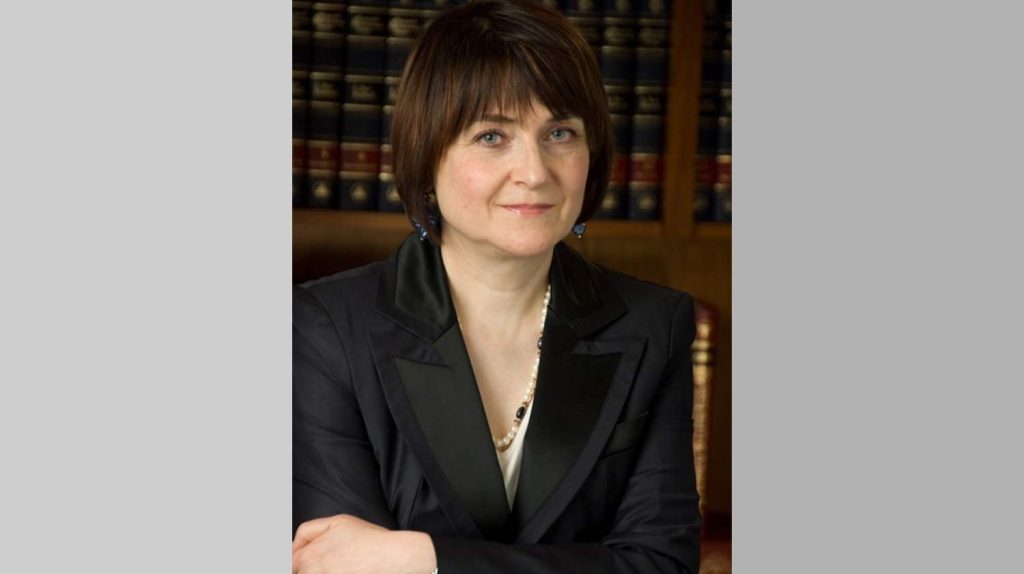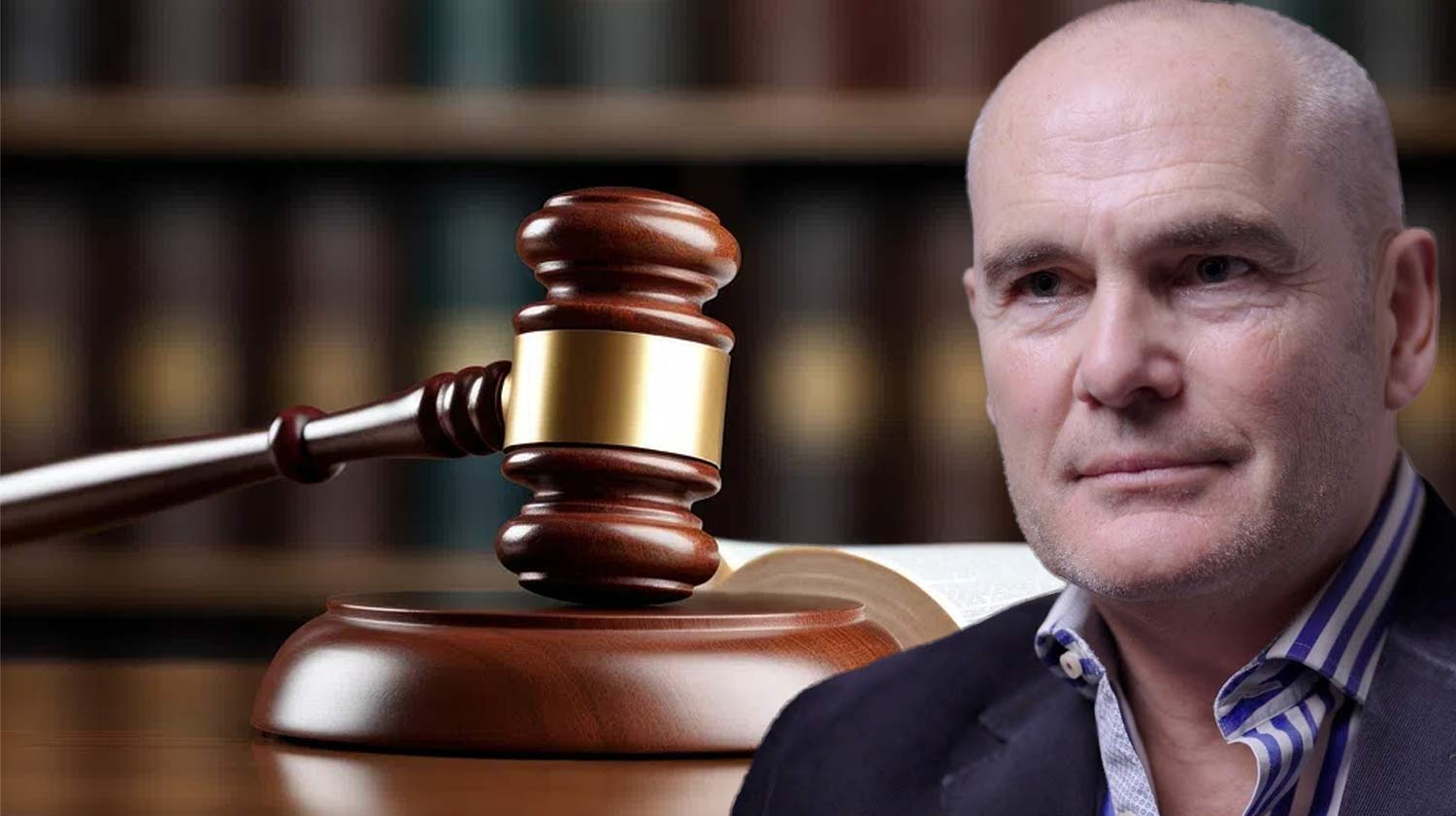A leading media lawyer has called out a major British newspaper for refusing to publish a story on Scientology after it received a threatening phone call from Church spokesperson Karin Pouw.
Earlier this year, I was approached by a journalist working for a major tabloid who was writing an article about my experience working for the Church of Scientology in London, to be published along with the story of another ex-member based in the US. After conducting an interview and engaging in a number of phone calls over several weeks, the piece was put to the Church for comment.
In response, the journalist received a phone call from a very angry Karin Pouw, who works for the Church’s Office of Special Affairs (OSA) and acts as their official spokesperson. She denied all the claims in the piece and accused the newspaper of being “religious bigots” in an attempt to intimidate and silence the journalist. Scientology made it clear that any criticism of any kind would be met with harsh legal action to protect their “religious freedom”.
Unfortunately, their scare tactics worked and the article was never published. Despite expecting pushback from the Church and evidence to back up the claims made in the piece, I was told the newspaper’s legal team decided it was not worth their time or energy engaging in litigation.
According to the confidential ‘HCO Manual of Justice’, which lays out Scientology’s policy on how to handle journalists, lawyers should be instructed to threaten lawsuits in response to bad press – but to “hardly ever permit a real suit” as they’re “more nuisance than they’re worth”.
In the case of a bad magazine article which is signed, use the following procedure:
Scientology HCO Manual of Justice – L. Ron Hubbard (1959)
- Tell them by letter to retract at once in the next issue.
- Hire a private detective of a national-type firm to investigate the writer, not the magazine, and get any criminal or Communist background the man has. (Because all subversive activities foolishly use criminals they “have something on” and men who have been paid to attack attack us, you’ll have data incoming from the detective agency if they do their work well).
- Have your lawyers or solicitors write the magazine threatening suit. (Hardly ever permit a real suit – they’re more of a nuisance to you than they’re worth.)
- Use the data you got from the detective at long last to write the author of the article a very tantalizing letter. Don’t give him your data on him. Just tell him we know something very interesting about him and wouldn’t he like to come in and talk about it. (If he comes, ask him to sign a confession of collusion and slander – people at that level often will, just to commit suicide – and publish it in a paid ad in the paper if you get it.) Chances are he won’t arrive. But he’ll sure shudder into silence.
- Give any new data you have from the detective to your attorneys for their use against the magazine.
- Don’t let the whole matter disrupt you, take much time, or upset the central organization.
In another policy letter (HCO PL 15 August 1960 – Department of Government Affairs) Scientology founder L. Ron Hubbard clarifies when facing criticism, “don’t ever defend. Always attack.” Scientology rarely follows through on its threats of legal action and a defamation case launched against TIME magazine was famously rejected in 2001.
Lawyer behind ‘Going Clear’ documentary and Leah Remini’s book ‘Troublemaker’ responds
Earlier this week one of the UK’s top media lawyers Jonathan Coad, who gave the legal approval for Alex Gibney’s documentary ‘Scientology: Going Clear‘ and Leah Remini’s book ‘Troublemaker‘, discussed the Church’s threats: “I’m really disappointed in the newspaper, I have to say.”
Mr. Coad, who represents a number of high profile celebrities and has been described as “an indestructible warrior for his clients”, said “It requires the work of courageous journalists and authors to expose [Scientology] for what it is… They are brutal towards apostates in a way which most people won’t understand.”
On the Going Clear documentary, he explained the Church’s UK reputation management firm Carter Ruck engaged in similar tactics, sending what he describes as an “absolute tsunami of letters threatening defamation claims, privacy claims, copyright claims and complaints to Ofcom.”

In response, he made it clear his instructions were to “fight it to a trial”, warning the Church it should only proceed with its threats if it was “prepared to stick Tom Cruise in a witness box and have him cross examined by the toughest KCs (barristers) in the country about the cult of Scientology”. He went on, “with all the overwhelming evidence of the wickedness of Scientology and the damage that it does to people’s lives, there was no way that the Church of Scientology was a viable libel claimant in the UK.”
Sure enough, Scientology’s threats turned out to be empty and the documentary received no Ofcom complaints or litigation after its transmission.
“We need lawyers to step up and play their part in combatting wickedness.” Coad explains. “There’s no other way of putting it, this is a wicked organisation. It has done wicked, wicked things to people. it’s wrecked families, it’s bled people dry. It deserves all the bad publicity it can get.”
He went on to say it’s “really disappointing that a national newspaper chickened out.. You cannot allow yourself, if you’re a national newspaper to be intimidated by bad people.”
“If you haven’t got the guts to do it… don’t be a journalist.”
You can watch the full interview with Jonathan Coad on Youtube below:









